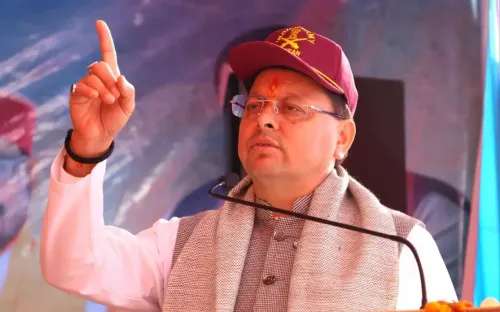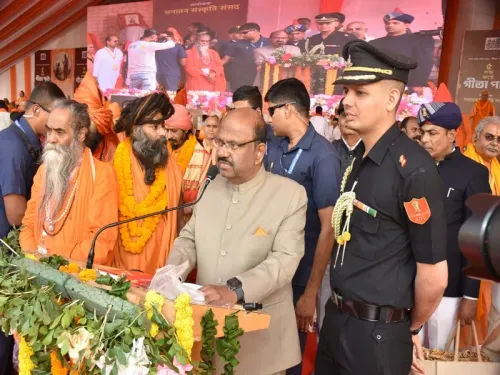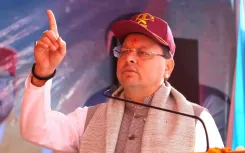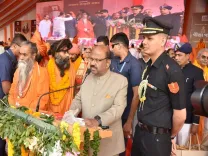PM Modi: Dr Ambedkar's Vision Will Empower Viksit Bharat
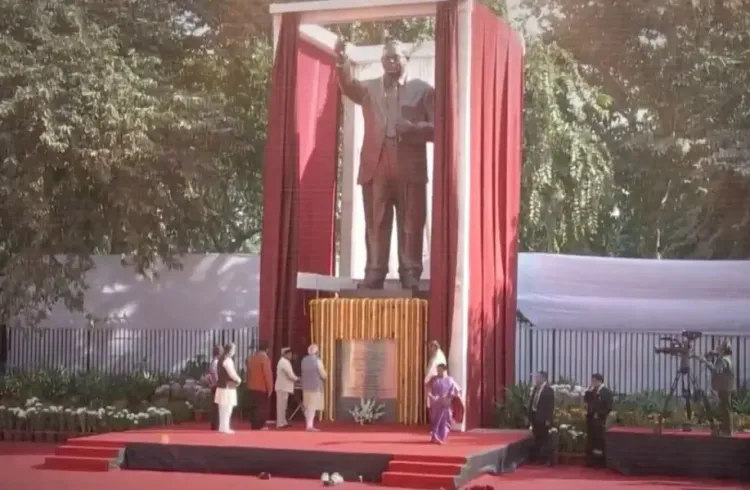
Synopsis
Key Takeaways
- Dr. Ambedkar was a key architect of the Indian Constitution.
- He emphasized the importance of education.
- PM Modi highlighted the 'Panch Teerth' honoring Ambedkar's legacy.
- Ambedkar's ideals inspire ongoing efforts for social justice.
- Government initiatives celebrate his contributions to India.
New Delhi, April 14 (NationPress) Prime Minister Narendra Modi commemorated Dr Bhim Rao Ambedkar on his birth anniversary on Monday, affirming that Baba Saheb's vision and principles continue to motivate the path towards transforming India into a self-reliant and developed nation.
Dr B.R. Ambedkar, born on April 14, 1891, in the military cantonment town of Mhow in Madhya Pradesh, was a monumental figure in Indian history -- a distinguished jurist, economist, social reformer, and political leader.
He was the chief architect of the Indian Constitution, leading the drafting committee and later serving as the inaugural Law and Justice Minister in the cabinet of then-Prime Minister Jawaharlal Nehru.
In a message on the social media platform X, Prime Minister Modi expressed, "On behalf of all Indians, I pay my respects to Bharat Ratna Pujya Babasaheb on his birth anniversary. It is through his inspiration that the nation is tirelessly working towards achieving the dream of social justice today."
"His principles and ideals will provide strength and momentum to the establishment of an Atmanirbhar and Viksit Bharat," he added.
In a video message, the Prime Minister referred to Ambedkar as a "symbol of humanity" who vehemently opposed any form of inhumanity.
"He always operated within constitutional frameworks. His singular message to society was to seek education; once educated, you can engage with the world on equal terms," PM Modi remarked.
He further reflected on Ambedkar's guiding principles -- education, organization, and the struggle for humanity, stating that these three tenets "continue to motivate and empower us even today."
Reflecting on Ambedkar's life and legacy, PM Modi underscored the social reformer's relentless commitment to the nation and to social justice.
"The essence with which Baba Saheb Ambedkar pursued his work was rooted in pure national dedication and social responsibility. Therefore, our commitment should be to uplift all, including Dalits, the oppressed, the impoverished, tribal communities, villagers, and slum dwellers seeking education. In this endeavor, Baba Saheb Ambedkar remains our eternal inspiration," he stated.
The Prime Minister also highlighted the government's initiatives to honor Ambedkar's legacy through the establishment of "Panch Teerth" -- five significant sites linked to his life.
These include 'Janam Bhoomi' in Mhow, Madhya Pradesh, where he was born; 'Siksha Bhoomi' in London, where he studied; 'Deeksha Bhoomi' in Nagpur, where he converted to Buddhism; 'Mahaparinirvan Sthal' in Delhi, where he spent his final days; and 'Chaitya Bhoomi' in Mumbai, his final resting place.
Moreover, the government under PM Modi has dedicated the Dr Ambedkar International Centre at 15, Janpath in Delhi to honor the Father of the Indian Constitution.
"Our government has prominently showcased Baba Saheb's contributions to the nation and the world," the Prime Minister stated. "These Panch Teerth will serve as an inspiration for future generations."
Union Parliamentary Affairs Minister Kiren Rijiju also paid tribute to Dr Ambedkar and shared a video from his visit to the Ambedkar Memorial House in London.
"My respects to Bharat Ratna Dr BR Ambedkar on his birth anniversary. This video was recorded during my visit to the residence where Babasaheb lived while studying Law in London. Now, this house has been acquired and transformed into the Ambedkar Memorial House," Rijiju posted on X.



